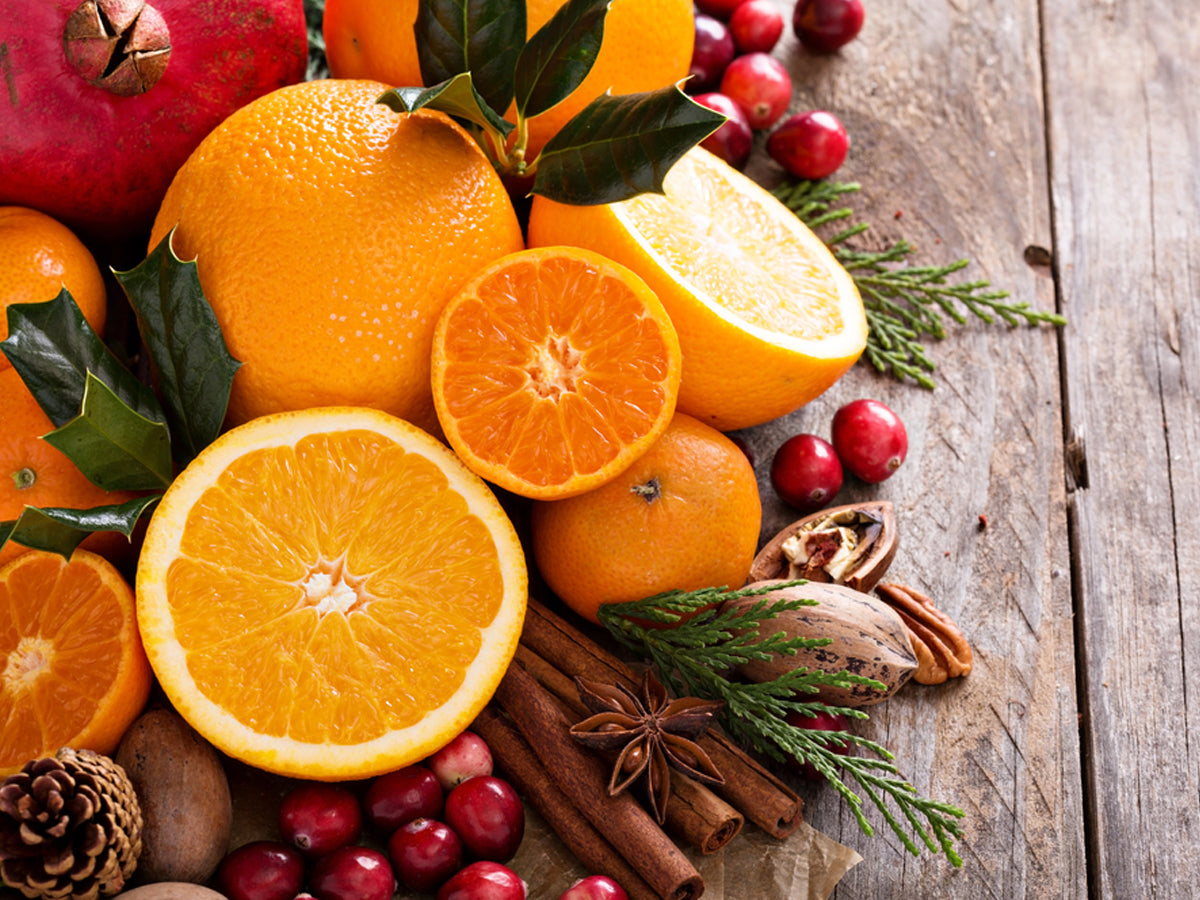How to Grow
Discover the Top 10 Seasonal Fruits in India to Enjoy During Winter
Aren’t fruits the first food?
According to history and research, the first humans consumed the same foods as chimpanzees do now, including fruits, leaves, flowers, bark, insects, and meat.
Many academics and spiritual teachers believe raw fruits and vegetables are enough for human bodies.
Arguments aside, fruits have essential nutrients, vitamins, minerals, and everything else that you require to stay healthy in any weather. Because of this, various fruits are available at different times of the year.
Winter is one of the much-loved seasons in this tropical country. This three months break from the heat is rejuvenating. Colds, coughs, sore throats, etc. are characteristic of this season. You can count on winter fruits to fend them off.
Today’s blog is about those winter fruits that help us stay healthy. We will cover the following in today's blog: -
- Reasons why fruits are good for your health
- List of winter special fruits in India
- Useful tips for winter special fruits
Let’s get started then.
Reasons Why Fruits are Good for your Health
Apart from taste, there are many reasons to include fruits in your diet. Those reasons are cited below: -
Weight loss & management
Most fruits contain more than 80-85% water, and they are also low in fat and calories. Plus, they are rich dietary fibers in them. All of these help with losing weight and maintaining a healthy weight.
Combat gastrointestinal problems
Indigestible fiber, found in both fruits and vegetables, absorbs water and expands as it travels through the digestive system. Insoluble fiber's bulking and softening effects also lower digestive tract pressure and may help prevent diverticulitis.
Reduces blood pressure
Fruits contain potassium in a good amount that helps lower blood pressure. Consuming seasonal fruits immediately offsets salt's ability to elevate blood pressure because salt contains sodium.
Promotes healthy heart
Lots of seasonal fruits are good for a healthy heart because they are low in saturated fats and high in fiber, vitamins, minerals, and antioxidants. These nutrients can help lower blood pressure, reduce inflammation, and improve cholesterol levels, which all contribute to a healthier cardiovascular system.
Fights diabetes
Fruit contains carbohydrates as well as fructose, a type of natural sugar that can cause an increase in blood sugar. But still, fruits are recommended in a moderate amount for diabetics. Several fruits are also rich in fiber. Since fiber slows digestion, blood sugar spikes are less likely to occur.
Apart from all these current seasonal fruits, they also help with better vision, flawless skin, lustrous hair, and a refreshing mind. So, keep the seasonal fruit chart of India chart ready at your fingertips so that you never miss out on these juicy and nutritious food items.
List of Winter Fruits in India
Here is a list of winter special fruits in India that you cannot miss: -
Apples
We all have heard, “an apple a day keeps the doctor away.” This proverb stands true because apples are a powerhouse of antioxidants, vitamins, and minerals. Apples promote good gut health and prevent the risk of cancer. Don’t miss this winter seasonal fruit at any cost.
Benefits
- Apples are the ideal fruit for weight loss due to their high fiber and water content as well as their anti-obesity polyphenols.
- Quercetin from apples may protect your brain from oxidative damage.
- Apple polyphenols may protect the heart and reduce the risk of diabetes.
Coconut
India is one of the top five coconut producers in the world. In raw form, as a dip, or in desserts, we Indians know how to have coconuts – right? This sweet and nutty fruit is a rich source of protein, fiber, iron, magnesium, manganese, copper, potassium, etc. In winter, various laddoos are made with coconut and other dry fruits since ancient times and now you know why.
Benefits
- The medium-chain fatty acids present in coconuts have antibacterial effects and can help avoid infections brought on by root canal procedures and other dental problems.
- Coconuts have anti-oxidants called polyphenols that may help shield your cells from cellular deterioration and prevent chronic disease.
- Coconut is low in carbohydrates and high in antioxidants, good fats, and fiber, all of which may help with blood sugar regulation.
Custard Apple
A large, fleshy, slightly heart-shaped tropical fruit, the custard apple is a wintertime genius. It is a sweet fruit with a vanilla-like aroma. Most people are fans of this subtle, creamy, and custard-like winter special fruit that originated in America and the West Indies.
Benefits
- Eating custard apples may improve your level of vitamin B6, which may elevate your mood and lower the risk of depression.
- The carotenoid antioxidants in custard apples, such as lutein, may be very potent in improving eye health and lowering the risks of heart disease and several types of cancer.
- This fruit has anti-inflammatory properties and is also an immunity booster.
Figs or Anjeer
The fig or Anjeer tree is grown for its fruits and ornamental value. It is a tear-shaped fruit with green skin that can develop into purple or brown and sweet, soft crimson flesh with numerous crunchy seeds. Figs are eaten in both dried and fresh forms.
Benefits
- Figs are low in calories and fat, making them a good snack for weight management.
- Anjeer contains calcium, which is important for bone health and can help prevent osteoporosis.
- Figs are a good source of iron, which is important for maintaining healthy blood and preventing anemia.
Grapes
Who doesn’t like these fresh, juicy, sweet, and slightly sour fruits of the winter season? There is something royal about grapes! This green, red, or black colored fruit is a great source of vitamins, minerals, and antioxidants, making it a healthy snack option during the winter months.
Benefits
- Flavonoids found in grapes have been shown to improve cognitive function and memory.
- The high fiber content in grapes can improve digestive health and reduce the risk of constipation.
- Resveratrol, a compound found in grapes, has been shown to have anti-inflammatory properties and may reduce the risk of inflammation-related diseases such as arthritis.
Guavas
Depending on the species, guavas can be long, spherical, or oval. They have a strong, distinctive scent that is reminiscent of lemon peel but less astringent. The outer green part is hard to semi-soft (depending on when you are harvesting), while the inner white part is soft with many edible seeds.
Benefits
- Guavas have anti-inflammatory properties that can reduce the risk of inflammatory conditions like arthritis and asthma.
- This fruit is a rich source of vitamins C and A, which boost the immune system.
- Guava has high fiber content that promotes digestive health and prevents constipation.
Indian Gooseberry or Amla
Everyone in India knows about this miraculous fruit, or "superfruit." The lustrous, spherical, light green fruit has a high vitamin C content. 100 grams of amla are equivalent to 20 oranges. It tastes sour, and people eat it in raw or cooked form across India.
Benefits
- The high percentage of vitamin C and antioxidants in Indian gooseberries supports healthy skin and hair.
- Indian gooseberry aids in managing diabetes by regulating blood sugar levels and improving insulin sensitivity.
- The vitamin C in amla helps boost immunity, protect against infections, and elevate energy levels.
Kiwis
With furry brown skin and juicy green inside, kiwifruit is tasty, sweet, and slightly sour. It is native to China. In India, it is grown in Himachal Pradesh, Jammu & Kashmir, Arunachal Pradesh, Kerala, etc. Add it to your breakfast or lunch plate, in salad bowls or smoothie glasses, and enjoy its various health benefits.
Benefits
- Kiwifruits have 230% of the daily recommended value of vitamin C. So, your immunity will improve with regular consumption of kiwifruit.
- This fruit contains folate and other B vitamins that support brain function and may reduce the risk of cognitive decline.
- Kiwis may support skin health and reduce the appearance of fine lines and wrinkles due to its high vitamin C content.
Oranges
This round, orange-colored bright and juicy fruit is a winter favorite. Orange, which is loaded with vitamins C and A, calcium, potassium, and fiber, is the healthiest fruit of the winter season. You simply cannot miss it.
Benefits
- Drinking fresh orange juice can provide instant energy and improve mental alertness.
- The high water content in oranges helps keep the body hydrated, which is important for healthy skin, joints, and organs.
- Oranges also contain flavonoids, which have anti-inflammatory properties and can help reduce the risk of heart disease, stroke, and certain cancers.
Strawberries
People love strawberries' distinctive aroma, vivid red color, juicy texture, and sweetness. Large amounts of it are consumed, either fresh or in prepared meals like jam, juice, pies, ice cream, and milkshakes, among others.
Benefits
- Because strawberries have a low glycemic index, they are a pleasant choice for those trying to manage or lower their blood sugar levels.
- Strawberries are rich in antioxidants and so they can help reduce oxidative stress and prevent the formation of cancer cells.
- This fruit may support a healthy cognitive function preventing diseases like dementia.
Useful Tips for Winter Fruits
Store fruits properly
Most winter fruits can be stored at room temperature for a few days, but if you want to keep them fresh for longer, store them in the refrigerator. Oranges, for example, can last up to two weeks in the fridge.
Handle with care
Winter fruits, especially pomegranates, can be delicate and easily bruised. Handle them with care to avoid damaging the fruit.
Clean before eating
Before eating any winter fruit, rinse it thoroughly under running water to remove any dirt, pesticides, or bacteria. Use a produce brush to scrub firm-skinned fruits like apples.
Freeze for later
If you have an abundance of winter fruits, consider freezing them for later use. Wash and dry the fruits, then slice or chop them as desired and freeze them in an airtight container or freezer bag.
Don’t waste
If you have fruits that are starting to go bad, use them up in recipes like smoothies, juices, or baked goods. You can also make jams or chutneys with overripe fruits. Don't let them go to waste!
Nature has a unique way of keeping us fit and fine, and that’s the reason why doctors, physicians, nutritionists, and everyone else related to the health and fitness industry suggests we consume seasonal fruits because they are loaded with nutrients. Each season has its own flavor, and so does winter. Have lots of winter seasonal fruits and stay safe!
FAQs Related to Winter Fruits
What are some popular winter fruits available in India?
Some popular winter fruits available in India include oranges, pomegranates, guavas, strawberries, grapes, apples, etc.
How should I choose the best winter fruits?
You should look for fruits that are firm, heavy for their size, and have a vibrant color. Please avoid fruits with soft spots or bruises.
What are seasonal fruits?
Seasonal fruits are fruits that are only available during specific times of the year when they are in season. These fruits are typically grown and harvested locally, and their availability can vary depending on factors such as weather and climate.
What are summer seasonal fruits?"
Summer seasonal fruits are those that are available during the summer months when they are in season. Examples are mangoes, watermelons, muskmelons, pineapples, litchis, and papayas.
What are monsoon seasonal fruits in India?
Monsoon season seasonal fruits in India include jamuns, plums, peaches, cherries, and pomegranates, which are available between June and September.
What are the health benefits of eating winter fruits?
Winter fruits are a good source of vitamins, minerals, and antioxidants that can help boost your immune system, improve digestion, and promote overall health and well-being.
Which winter seasonal fruits can be grown at home?
You can grow strawberries, lemons, oranges, etc. kind of winter seasonal fruits at home.



